It seems to me that the information that betting so heavily on FTX and SBF was an avoidable failure. So what could we have done ex-ante to avoid it?
You have to suggest things we could have actually done with the information we had. Some examples of information we had:
First, the best counterargument:
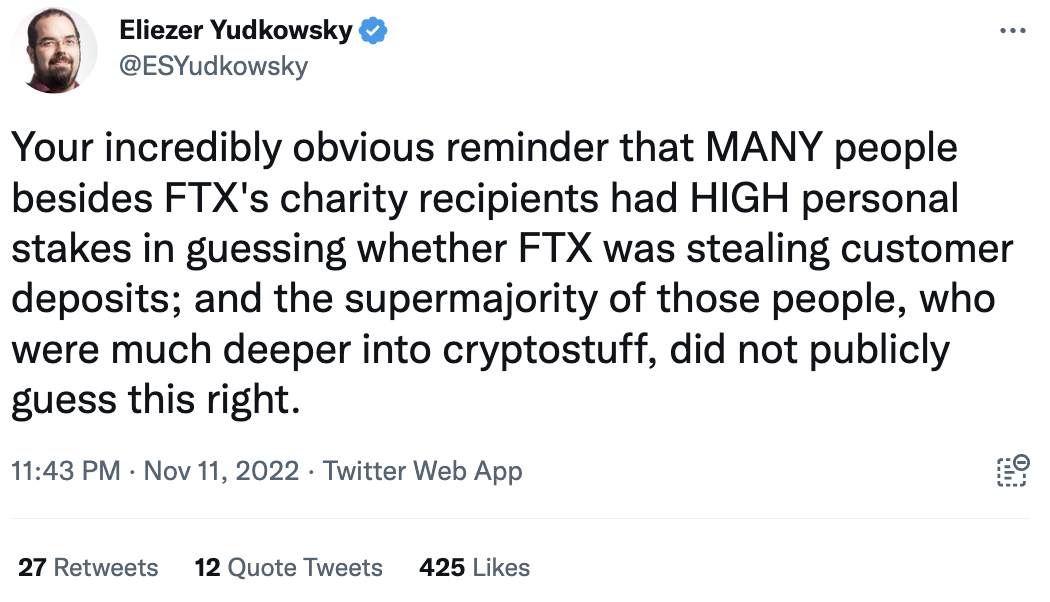
Then again, if we think we are better at spotting x-risks then these people maybe this should make us update towards being worse at predicting things.
Also I know there is a temptation to wait until the dust settles, but I don't think that's right. We are a community with useful information-gathering technology. We are capable of discussing here.
Things we knew at the time
We knew that about half of Alameda left at one time. I'm pretty sure many are EAs or know them and they would have had some sense of this.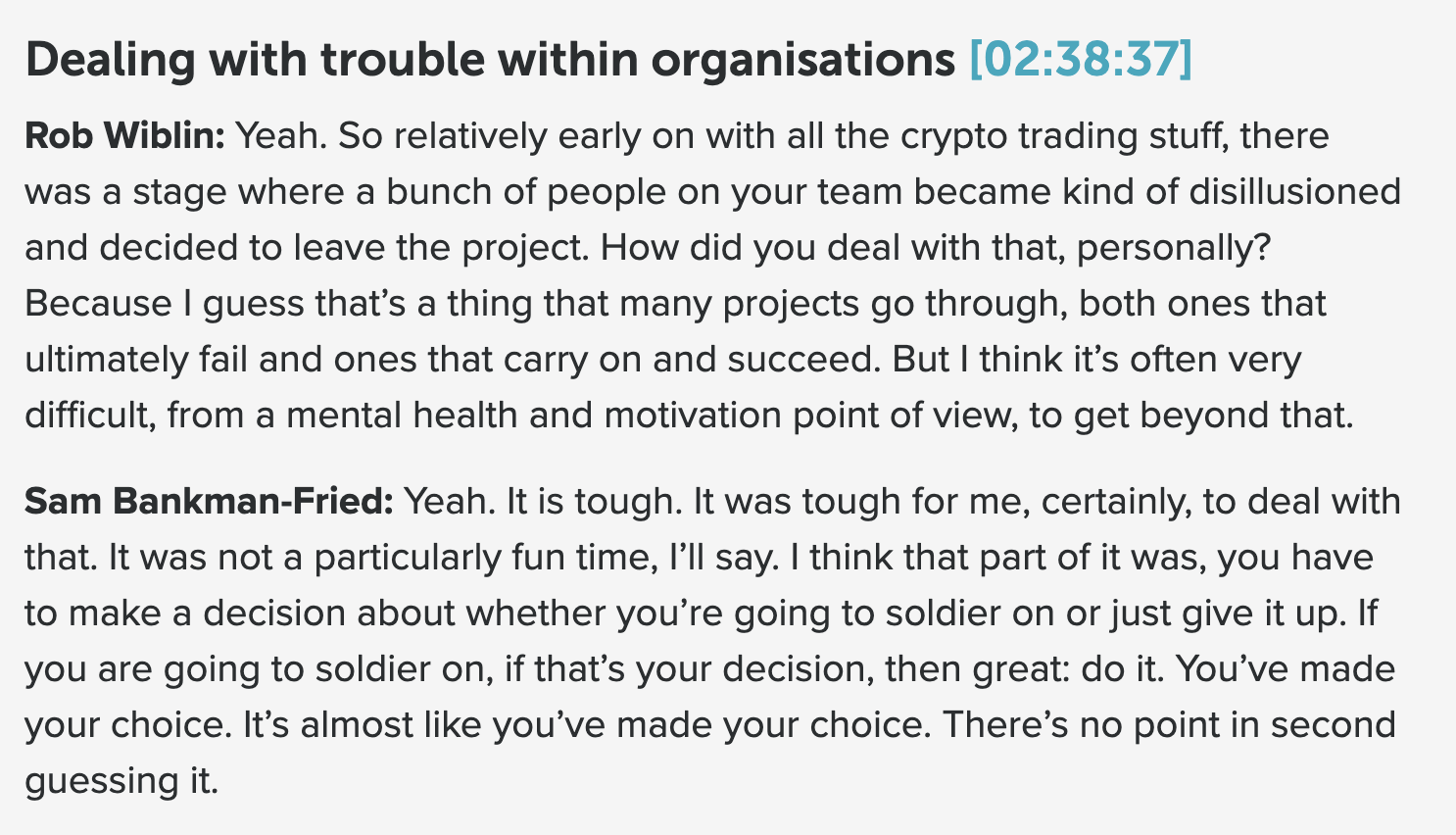
We knew that SBF's wealth was a very high proportion of effective altruism's total wealth. And we ought to have known that something that took him down would be catastrophic to us.
This was Charles Dillon's take, but he tweets behind a locked account and gave me permission to tweet it.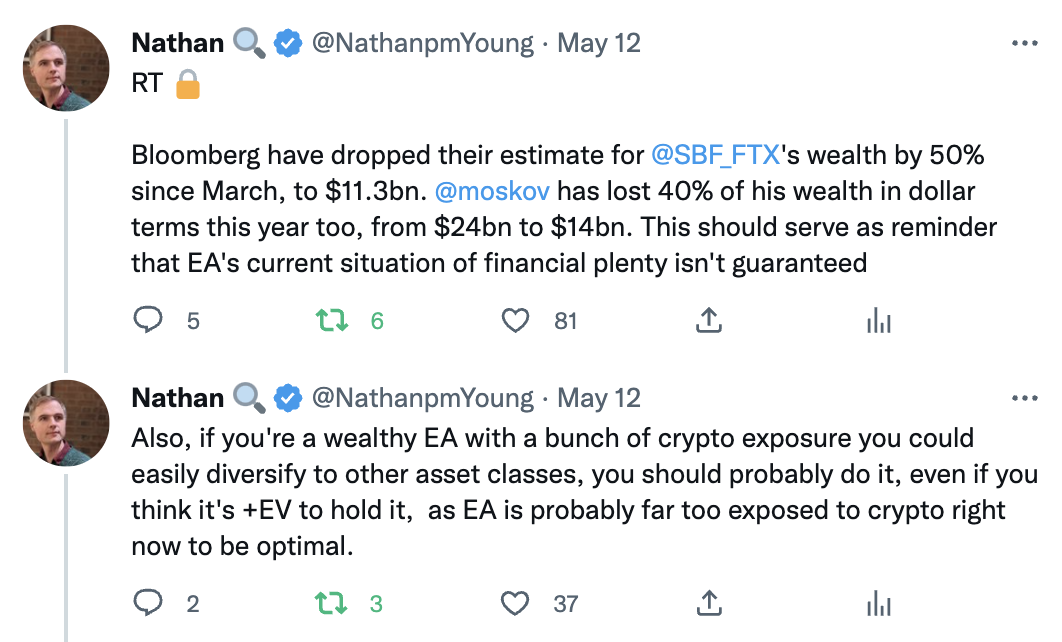
Peter Wildeford noted the possible reputational risk 6 months ago:
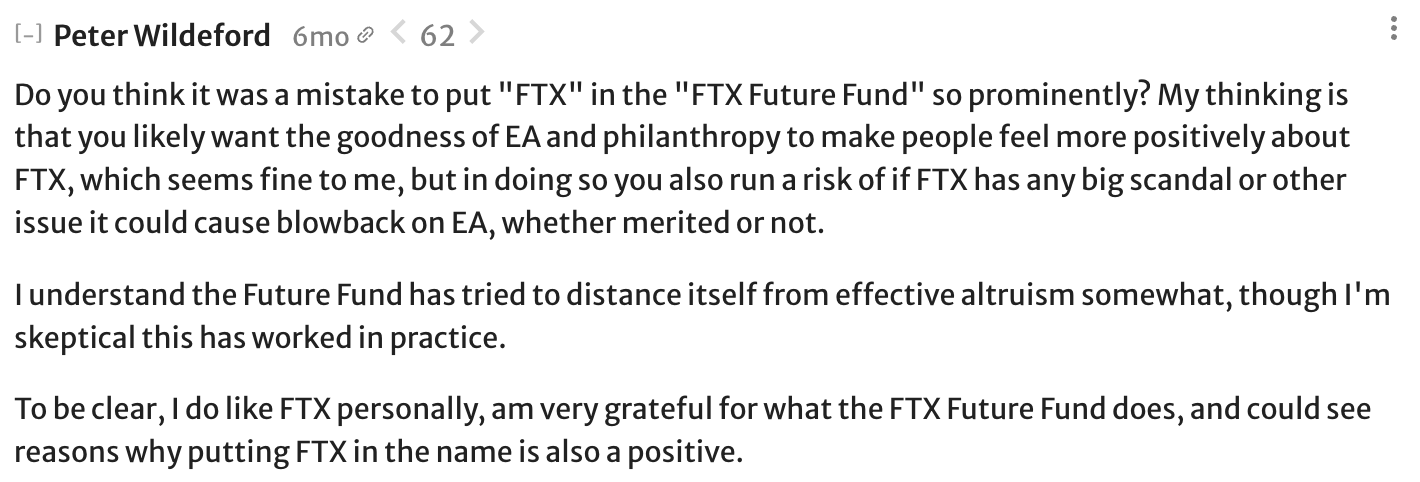
We knew that corruption is possible and that large institutions need to work hard to avoid being coopted by bad actors.
Many people found crypto distasteful or felt that crypto could have been a scam.
FTX's Chief Compliance Officer, Daniel S. Friedberg, had behaved fraudulently In the past. This from august 2021.
In 2013, an audio recording surfaced that made mincemeat of UB’s original version of events. The recording of an early 2008 meeting with the principal cheater (Russ Hamilton) features Daniel S. Friedberg actively conspiring with the other principals in attendance to (a) publicly obfuscate the source of the cheating, (b) minimize the amount of restitution made to players, and (c) force shareholders to shoulder most of the bill.

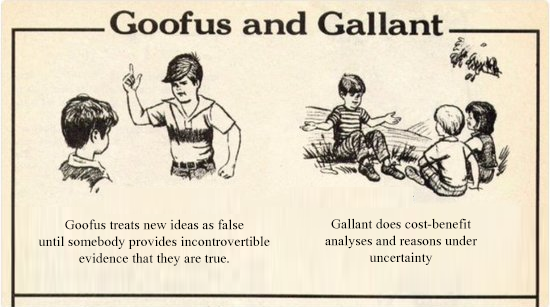
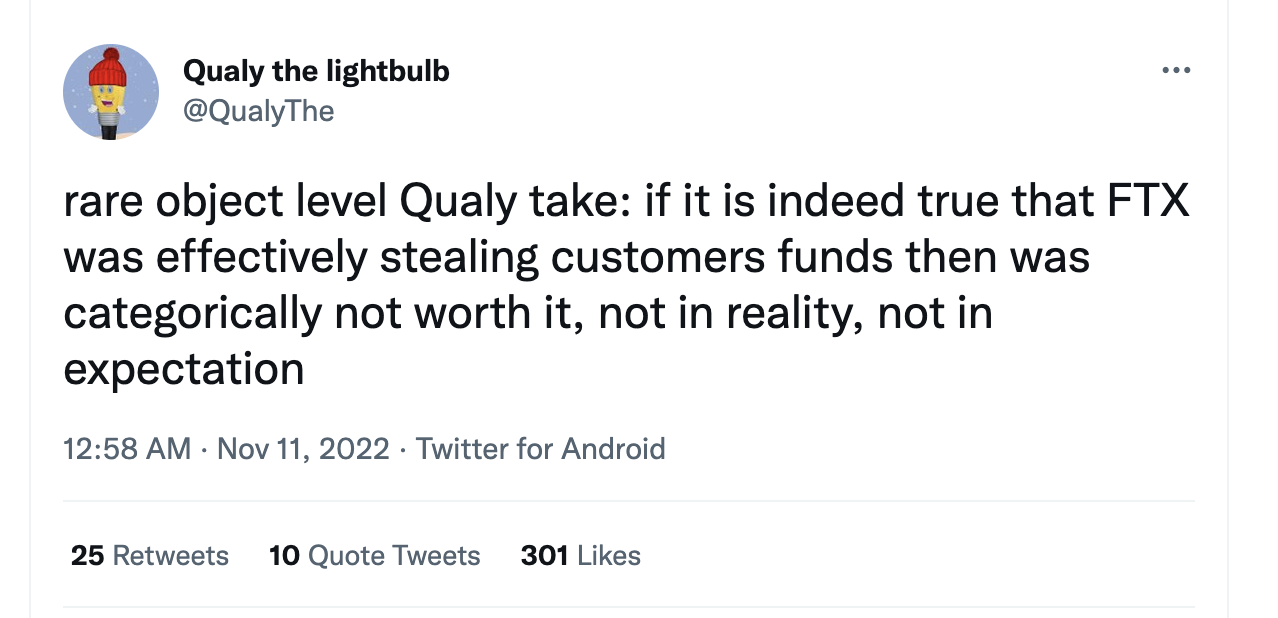
To be honest, classical utilitarian or not, I find it hard for one to be confident about the sign of illegal and dishonest actions when these could potentially have both high downside and high upside.
For shortish AI timelines, super low chance of fraud being detected, only super wealthy people losing money, and the fraudulent people having little connection to EA, I can see fraud being positive ex ante. I can also see it being quite negative, e.g. if the likelihood of fraud being detected was 50 %, the people harmed were just ordinary citizens (harming the median US citizen is much worse in terms of reputation risks than quietly stealing money from billonaires), and the fraudulent people were strongly connected to EA.
For the specific case of FTX, I am not confident at all, but lean towards it being positive (I could easily see my sign change with only 30 min of research).